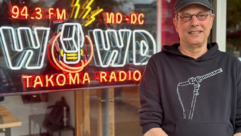Commission stepping up rule enforcement
Mar 1, 2008 12:00 PM, By Harry Martin
A Texas AM station was fined $8,800 for failing to maintain a main studio and power down at sunset. An FCC inspector, after checking on four successive days, could not find the station’s main studio. While conducting this search the agent took signal measurements and determined that the station was not powering down at night as its license required.
After speaking with the station manager, the FCC agent was directed to a local hair salon. There he was told that the salon, also operated by the manager, doubled as the station’s main studio. The manager explained that the beauticians knew to call him if anyone turned up asking questions about the station. The manager showed the agent broadcast equipment in a closet in the back room. However, the agent found the equipment was not plugged in to any power source.
A meeting with the contract engineer revealed that the station was broadcasting from an unattended computer at the transmitter. Moreover, the engineer confirmed that the station had not been powering down at sunset. The FCC fined the station $5,600 for using a beauty salon as its main studio with no full-time station employees and an additional $3,200 for not powering down.
A Utah FM station faces a $4,000 fine after one of its on-air personalities made a prank call to a state poison control center to ask about symptoms from swallowing pepper spray. He recorded the call and played it back for his listeners, one of whom complained to the FCC. In this case the person contacted at the poison control center was not told, as the rules require, that the conversation was being recorded for broadcast.
The station admitted that the incident occurred but claimed that the D.J. was behaving in violation of company policy, that management was unaware of the prank and that it only happened once. The station also noted that at least the D.J. called a non-emergency number. The FCC reiterated its zero tolerance policy for recorded or broadcast telephone conversations and fined the station $4,000.
In 2005 the FCC’s attention was called to www.hobbytron.com, an Internet supplier of illegal FM pirate radio equipment. The website now has a new owner. The FCC recently visited the website again and found it is marketing illegal FM transmitters. In fact, the website continues to offer the equipment at clearance sale prices. The FCC has warned the new owner that selling transmitters without an FCC certificate is a punishable federal offense. This ongoing saga is likely to continue until arrests are made.
Changes in fee filing location
The FCC is changing its �lockbox� bank location for all?fees submitted by check. Effective upon publication of the order in the Federal Register, all application fees, regulatory fees and any accompanying paper applications, forms or other filings, which used to go to the Commission’s lockbox bank in Pittsburgh, will have to be delivered instead to US Bank at 1005 Convention Plaza in St. Louis. As in the past, each filing must reflect the FCC as the addressee, with a particular P.O. Box specified, with the box number varying depending on the nature of the filing being submitted.
The FCC has provided a 45-day transition period, which will begin the day of Federal Register publication. During?this period,?any fee-based filings and fee payments submitted to the Pittsburgh?location will be automatically forwarded to the St. Louis lockbox bank, and the date-stamp reflecting the date of receipt by the Pittsburgh lockbox bank will be deemed the official filing date.
Dateline
April 1 is the deadline for submission of biennial ownership reports by radio stations in Delaware, Indiana, Kentucky, Pennsylvania and Tennessee.
On April 1 radio stations with more than 10 full-time employees located in Indiana, Kentucky and Tennessee must electronically file their Broadcast EEO Mid-Term Reports (Form 397) with the FCC.
Also on or before April 1 radio stations in the following states must place their annual EEO Reports in their public files: Delaware, Indiana, Kentucky, Tennessee, Texas and Pennsylvania.
Martin is a past president of the Federal Communications Bar Association and a member of Fletcher, Heald & Hildreth, Arlington, VA. E-mail[email protected].










